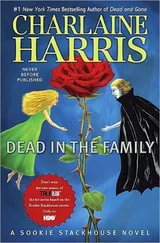“They’re children,” Miss Mailer points out.
“No, they’re not,” Sergeant says, very loudly. “And that, that right there, that’s why you don’t want to read them Winnie-the-Pooh . You do that, you start thinking of them as real kids. And then you slip up. And maybe you untie one of them because she needs a cuddle or something. And I don’t need to tell you what happens after that.”
Sergeant comes out to the front of the class then, and he does something really horrible. He rolls up his sleeve, all the way to the elbow, and he holds his bare forearm in front of Kenny’s face: right in front of Kenny, just an inch or so away from him. Nothing happens at first, but then Sergeant spits on his hand and rubs at his forearm, like he’s wiping something away.
“Don’t,” says Miss Mailer. “Don’t do that to him.” But Sergeant doesn’t answer her or look at her.
Melanie sits two rows behind Kenny, and two rows over, so she can see the whole thing. Kenny goes real stiff, and he whimpers, and then his mouth gapes wide and he starts to snap at Sergeant’s arm, which of course he can’t reach. And drool starts to drip down from the corner of his mouth, but not much of it because nobody ever gives the children anything to drink, so it’s thick, kind of half-solid, and it hangs there on the end of Kenny’s chin, wobbling, while Kenny grunts and snaps at Sergeant’s arm, and makes kind of moaning, whimpering sounds.
“You see?” Sergeant says, and he turns to look at Miss Mailer’s face to make sure she gets his point. And then he blinks, all surprised, and maybe he wishes he hadn’t, because Miss Mailer is looking at him like Clytemnestra looked in the painting, and Sergeant lets his arm fall to his side and shrugs like none of this was ever important to him anyway.
“Not everyone who looks human is human,” he says.
“No,” Miss Mailer agrees. “I’m with you on that one.”
Kenny’s head sags a little sideways, which is as far as it can move because of the strap, and he makes a clicking sound in his throat.
“It’s all right, Kenny,” Miss Mailer says. “It will pass soon. Let’s go on with the story. Would you like that? Would you like to hear what happened to Pooh and Piglet? Sergeant Robertson, if you’ll excuse us? Please?”
Sergeant looks at her, and shakes his head real hard. “You don’t want to get attached to them,” he says. “There’s no cure. So once they hit eighteen . . .”
But Miss Mailer starts to read again, like he’s not even there, and in the end he leaves. Or maybe he’s still standing at the back of the classroom, not speaking, but Melanie doesn’t think so because after a while Miss Mailer gets up and shuts the door, and Melanie thinks that she’d only do that right then if Sergeant was on the other side of it.
Melanie barely sleeps at all that night. She keeps thinking about what Sergeant said, that the children aren’t real children, and about how Miss Mailer looked at him when he was being so nasty to Kenny.
And she thinks about Kenny snarling and snapping at Sergeant’s arm like a dog. She wonders why he did it, and she thinks maybe she knows the answer because when Sergeant wiped his arm with spit and waved it under Kenny’s nose, it was as though under the bitter chemical smell Sergeant had a different smell altogether. And even though the smell was very faint where Melanie was, it made her head swim and her jaw muscles start to work by themselves. She can’t even figure out what it was she was feeling, because it’s not like anything that ever happened to her before or anything she heard of in a story, but it was like there was something she was supposed to do and it was so urgent, so important, that her body was trying to take over her mind and do it without her.
But along with these scary thoughts, she also thinks: Sergeant has a name, the same way the teachers do. The same way the children do. Sergeant has been more like the goddess Artemis to Melanie up until now; now she knows that he’s just like everyone else, even if he is scary. The enormity of that change, more than anything else, is what keeps her awake until the doors unlock in the morning and the teachers come.
In a way, Melanie’s feelings about Miss Mailer have changed, too. Or rather, they haven’t changed at all, but they’ve become stronger and stronger. There can’t be anyone better or kinder or lovelier than Miss Mailer anywhere in the world; Melanie wishes she was a Greek warrior with a sword and a shield, so she could fight for Miss Mailer and save her from Heffalumps and Woozles. She knows that Heffalumps and Woozles are in Winnie-the-Pooh , not the Iliad , but she likes the words, and she likes the idea of saving Miss Mailer so much that it becomes her favorite thought. She thinks it whenever she’s not thinking anything else. It makes even Sundays bearable.
One day, Miss Mailer talks to them about death. It’s because most of the men in the Light Brigade have just died, in a poem that Miss Mailer is reading to the class. The children want to know what it means to die, and what it’s like. Miss Mailer says it’s like all the lights going out, and everything going real quiet, the way it does at night—but forever. No morning. The lights never come back on again.
“That sounds terrible,” says Lizzie, in a voice like she’s about to cry. It sounds terrible to Melanie, too; like sitting in the shower room on Sunday with the chemical smell in the air, and then even the smell goes away and there’s nothing at all forever and ever.
Miss Mailer can see that she’s upset them, and she tries to make it okay again by talking about it more. “But maybe it’s not like that at all,” she says. “Nobody really knows, because when you’re dead, you can’t come back to talk about it. And anyway, it would be different for you than it would be for most people because you’re . . .”
And then she stops herself, with the next word sort of frozen halfway out of her lips.
“We’re what?” Melanie asks.
“You’re children,” Miss Mailer says, after a few seconds. “You can’t even really imagine what death might be like, because for children it seems like everything has to go on forever.”
There’s a silence while they think about that. It’s true, Melanie decides. She can’t remember a time when her life was any different from this, and she can’t imagine any other way that people could live. But there’s something that doesn’t make sense to her, in the whole equation, and so she has to ask the question.
“ Whose children are we, Miss Mailer?”
In stories, she knows, children have a mother and a father, like Iphigenia had Clytemnestra and Agamemnon. Sometimes they have teachers, too, but not always, and they never seem to have Sergeants. So this is a question that gets to the very roots of the world, and Melanie asks it with some trepidation.
Miss Mailer thinks about it for a long time, until Melanie is pretty sure that she won’t answer. Then she says, “Your mom is dead, Melanie. She died before . . . She died when you were very little. Probably your daddy’s dead, too, although there isn’t really any way of knowing. So the army is looking after you now.”
“Is that just Melanie,” John asks, “or is it all of us?”
Miss Mailer nods slowly. “All of you.”
“We’re in an orphanage,” Anne guesses. The class heard the story of Oliver Twist once.
“No. You’re on an army base.”
“Is that what happens to kids whose mom and dad die?” This is Steven now.
“Sometimes.”
Melanie is thinking hard, and putting it together, inside her head, like a puzzle. “How old was I,” she asks, “when my mom died?” Because she must have been very young, if she can’t remember her mother at all.
Читать дальше












